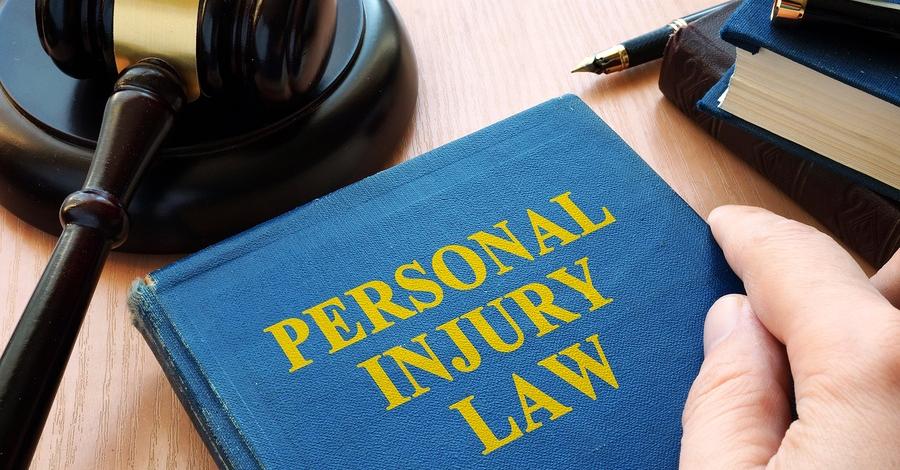Many injuries happen because of bad luck, misfortune, and simply being in the wrong place at the wrong time. However, some occur because of the neglect, negligence, or deliberate acts of others. An at-fault party may be an individual, more than one person, or an entity. Injuries can range from minor and relatively inconsequential to extremely serious and life-changing. You may not even notice some injuries, and they may heal quickly, not affecting your daily activities. Other injuries could be physically, emotionally, and financially devastating. In the most drastic and severe situations, you can take legal action by consulting a personal injury lawyer and filing a lawsuit.
Winning your case in a personal injury suit requires that you establish proof and show that someone else is at fault for your injuries and should be accountable. The centrality of evidence in injury lawsuits is critical to the success of your case. Different types of evidence are effective and permissible in personal injury lawsuits. How you will gather and use such evidence will help determine whether you win or lose your case—and ultimately get the compensation you need to recover any damages.
Testimony
One of the most crucial types of evidence you will present in your personal injury case is testimony. If your case goes to court, this is the most common form of evidence you and your lawyer will use. This kind of evidence involves a witness to the matter in question. The witness will provide information about the accident that caused your injuries and will do so in court under oath. This testimony is designed to help your cause by substantiating your claims. For example, your lawyer may call a witness to testify that he or she saw the driver of a vehicle run a red light and crash into you. A witness may also be a bystander who saw an unleashed dog attack and bite you. These firsthand accounts are vital in establishing the veracity of your lawsuit.
Testimony may also come from expert witnesses who can verify to the court that your injury claims have merit. Common expert witnesses in injury cases include doctors and other medical professionals who treated you following an accident. Law enforcement officers who responded to a car accident or other incident can also be expert witnesses. Other expert witnesses may include highway safety professionals, forensic accountants, and economic professionals.
Physical Evidence
When it comes to the centrality of evidence in injury lawsuits, physical evidence is often readily available. Often, the plaintiff’s injuries will be visibly apparent and unmistakable. For instance, if a slip-and-fall accident left a victim with neck injuries, the individual may be confined to a wheelchair. If defective equipment in a manufacturing facility results in a worker getting burned, that person will likely have visible burn marks on his or her body. This type of physical evidence is tangible and could be difficult for the defense to refute.
In personal injury claims, the plaintiff may also seek property damages. This is common in car accidents. In such situations, evidence to prove property damage claims could include photos of the vehicle’s damage.
Documents and Records
If you have been injured in an accident, you should seek medical attention promptly. Even if your injuries are minor, don’t delay visiting a competent physician. This step is vital in building a case. Medical professionals keep thorough records and document visits from patients and their treatment. This is true for a visit to the doctor’s office or emergency room, as well as extended stays in the hospital or rehabilitation centers.
The medical records will show important information that you and your lawyer can use as evidence against the defendant. The records and documentation will note the nature and severity of your injuries, how you suffered your injuries, the treatment you have received, and what your recovery prognosis may look like. In these records, doctors, surgeons, and other medical personnel may share their opinions of what type of attention you will need going forward and how your injuries will impact you. Videos and recordings can also be helpful. Examples of this include 911 calls following an accident and injuries.
Medical bills and statements will also be key evidence, as they will show why you are asking for a certain amount of compensation for your injuries. These could include receipts of payments you have already made or bills you have received from a provider that are due or have come past due.
With the Right Evidence, Your Chances Are Greater
Hearsay, speculation, and conjecture are insufficient in building a personal injury case. Only the centrality of evidence in injury lawsuits will get you the results you want. If you and your lawyer can present strong evidence that the defendant is responsible for your injuries and that the injuries have taken a toll on your health and finances, you can recover damages.
You will likely claim economic damages, such as the loss of income that your injuries have caused. If you are hurt badly enough, you may not have been able to work and may not be able to return in the future. Your injuries have also likely required expensive treatment, resulting in overwhelming medical bills and other obligations. Compensation from your settlement can pay these costs.
In addition, if you can present good evidence, you might be able to recover non-economic damages. These include pain and suffering and a diminished quality of life. Compensation for these damages can sometimes exceed payments for economic damages. Evidence from expert witnesses, including mental health professionals, is highly useful in these types of damages.
The centrality of evidence in injury lawsuits cannot be overstated or minimized. Like any legal matter, evidence is essential in establishing a plaintiff’s position and claims. Personal injury lawyers are skilled at finding and producing testimony, physical evidence, and records and documents. If you have suffered an injury another person caused, remember that evidence will be necessary if you pursue a lawsuit.






